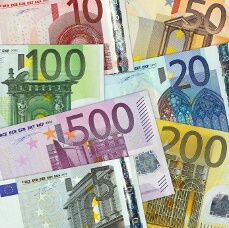The was almost flat against some other most-traded currencies (like the Great Britain pound and the Swiss franc) and logged a sharp decline against others (including the US dollar and the Japanese yen).
The eurozone current account recorded a surplus of â¬31.0 billion in December 2016. While it was lower than the November reading of â¬36.4 billion, the actual figure was better than the median forecast of â¬28.7 billion. Yet that did not help the euro.
There are plenty of reasons that can explain such poor performance of the shared 19-nation currency. Among them are political uncertainty associated with this year’s elections in Europe and the signs that the European Central Bank is not in a hurry to taper its quantitative easing.
EUR/USD dropped from 1.0672 to 1.0606 as of 20:08 GMT today. EUR/GBP traded near its opening level of 1.08542 after rising to the daily high of 0.8588. EUR/JPY declined from 120.86 to 119.78.
If you have any questions, comments or opinions regarding the Euro,
feel free to post them using the commentary form below.



Be First to Comment